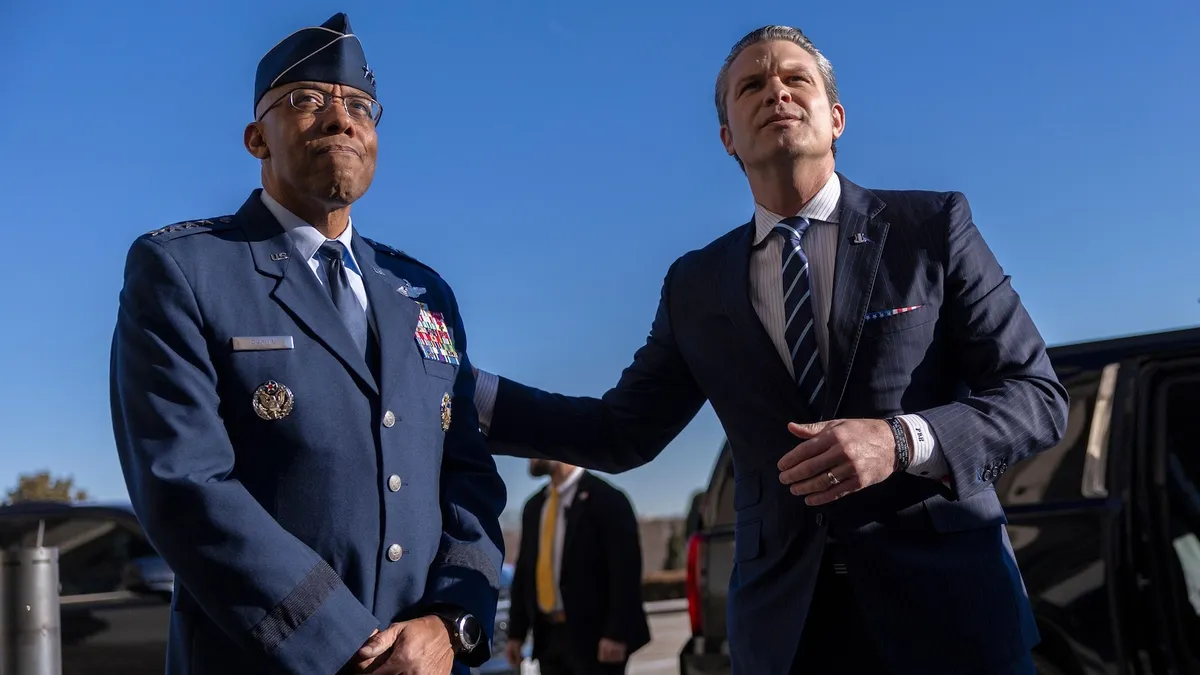
In an unprecedented move, President Donald Trump has dismissed both Gen. Charles CQ Brown Jr., the chairman of the Joint Chiefs of Staff, and Adm. Lisa Franchetti, the Navy's top admiral. This marks the first time two members of the Joint Chiefs of Staff have been relieved of their duties simultaneously.
Retired military officer, Lieutenant General Dan "Razin" Caine, will be reactivated to assume the role of the president's senior military adviser and the nation's top military officer, pending Senate confirmation. Caine, an accomplished F-16 pilot with 34 years of service, brings extensive experience in national security and special operations.
President Trump expressed gratitude for General Brown's over 40 years of service, highlighting his leadership and contributions as the current Chairman of the Joint Chiefs of Staff. Brown became the president's top military adviser in October 2023 and was expected to serve until September 2027, being only the second African American in this role. Adm. Lisa Franchetti was the first woman to serve as the Navy's top admiral.
The role of the chairman is designed to be apolitical, with its four-year term typically overlapping presidential election years, allowing for continuity across different administrations. However, President Trump has the authority to remove and reassign generals and senior officers. If removed, these officers may not have another role available to them within the military hierarchy.
Trump announced his nomination of General Caine on Truth Social, praising Caine as an accomplished pilot and national security expert. Trump lauded Caine's role in the defeat of ISIS, stating it was achieved much faster than anticipated.
Defense Secretary Pete Hegseth informed both Brown and Franchetti of their dismissal while they were traveling outside Washington. Hegseth has requested nominations to replace Franchetti and other key military roles. He emphasized the need for leadership focused on deterring, fighting, and winning wars.
The removal of these senior military officers has drawn criticism from former military leaders and politicians. Retired Gen. George Casey emphasized the importance of civilian control over the military, warning that firing officers for following directives undermines essential civil-military relations.
Senator Roger Wicker expressed gratitude for Brown's service and confidence in Trump's ability to select a capable successor. However, Senator Jack Reed raised concerns about the dismissals being politically motivated, potentially undermining military professionalism.
Brown and Franchetti's names appeared on a list of officials under consideration for removal by Hegseth. Hegseth criticized Brown and Franchetti in his book, questioning their qualifications and emphasizing a focus on warfighting.
As the military faces leadership changes, the implications of these dismissals on military operations and morale remain to be seen. The move has sparked a debate on the intersection of politics and military leadership, highlighting the need for a clear focus on national security objectives.